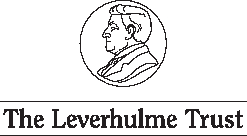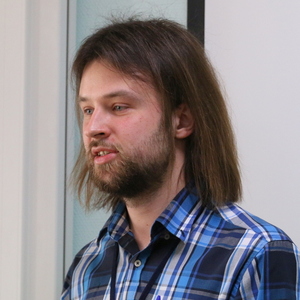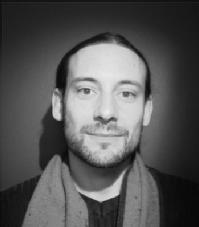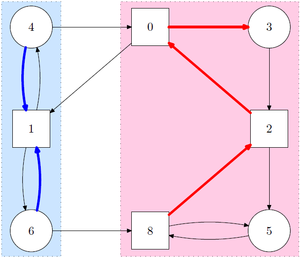FoCS Archive News - Before Sept 20
Ranko Lazic is a new Leverhulme Research Fellow
 Dr Ranko Lazic has been awarded a Leverhulme Research Fellowship for the 2017/18 academic year, to work on the Petri nets reachability conjecture.
Dr Ranko Lazic has been awarded a Leverhulme Research Fellowship for the 2017/18 academic year, to work on the Petri nets reachability conjecture.
Petri nets, also known as vector addition systems, are one of the most prominent models of concurrency, and their study is a vibrant research area. They have been used to discover bugs and eliminate vulnerabilities in network protocols, concurrent software, business processes, hardware circuits, and control systems.
Professor Artur Czumaj, head of the Foundations of Computer Science research group, has commented:
This prestigious fellowship will further strengthen the internationally leading research in theoretical computer science at Warwick, which recently has been also greatly boosted by the new permanent appointments of Dr Sayan Bhattacharya and Dr Dmitry Chistikov.
Dmitry Chistikov joins the Department as a new Assistant Professor
 The Department is welcoming our new Assistant Professor Dmitry Chistikov, who will be associated with the Division of Theory and Foundations (FoCS) and the Centre for Discrete Mathematics and its Applications (DIMAP).
The Department is welcoming our new Assistant Professor Dmitry Chistikov, who will be associated with the Division of Theory and Foundations (FoCS) and the Centre for Discrete Mathematics and its Applications (DIMAP).
After obtaining his Candidate of Sciences (equivalent to PhD) degree at the Department of Computational Mathematics and Cybernetics of Moscow State University, Dmitry was a postdoctoral researcher at the Max Planck Institute for Software Systems, as wel as at the University of Oxford.
The general area of Dmitry's research is theoretical computer science. In particular, he is interested in theoretical foundations of verification: its algorithmic aspects (decision and counting problems) as well as combinatorial aspects (extremal properties and characteristics of mathematical models of computation).
For more information about Dmitry's research, please see his web page.
Graham Cormode awarded 2017 Adams Prize

Professor Graham Cormode has been awarded the 2017 Adams Prize by the Cambridge Faculty of Mathematics. The award recognizes his work on "Statistical Analysis of Big Data", and is awarded jointly with Professor Richard Samworth of Cambridge. Professor Cormode says,
My work, in common with Prof Samworth's, is about finding mathematical representations of data that allow useful information to be extracted effectively and accurately. These techniques allow ever larger quantities of data to be handled on ordinary computers.
Professor Cormode's work on "data sketches" has been used in companies such as Netflix, Yahoo, Twitter, Google, AT&T and Sprint. He is currently leading Warwick's involvement in the Alan Turing Institute at London, and working on questions to do with verification of machine learning, and privacy.
The prize is worth £15,000 and will be split equally between the two recipients.
Sylvain Schmitz visits as IAS Residential Fellow
 As a Residential Fellow of Warwick's Institute of Advanced Study, Dr Sylvain Schmitz is visiting the department 20-24 March 2017, for collaborative research with Dr Ranko Lazic and other members of DIMAP.
As a Residential Fellow of Warwick's Institute of Advanced Study, Dr Sylvain Schmitz is visiting the department 20-24 March 2017, for collaborative research with Dr Ranko Lazic and other members of DIMAP.
Schmitz (PhD University of Nice - Sophia Antipolis 2007) is an Assistant Professor at ENS Paris-Saclay and a permanent member of LSV, one of the top European research centres in logical aspects of computer science. In 2015, Schmitz was a Leverhulme Visiting Professor at Warwick. An author of over 40 articles in international journals and conferences, Schmitz's work has attracted over 500 citations, won best-paper awards, and been presented at several invited talks and European doctoral schools.
New collaborative project on parity games

Dr Marcin Jurdzinski and Dr Ranko Lazic from Warwick's DIMAP inter-disciplinary centre and the Computer Science department, jointly with Dr Sven Schewe, Dr John Fearnley and Dr Dominik Wojtczak from the University of Liverpool, will lead a new research project on solving parity games in theory and practice, to run 2017-2020.
The project will be supported by approx. £750K from the EPSRC across the two sites. The proposal was ranked top at its funding prioritisation panel, and the reviewers said:
This is the strongest and best designed proposal on theoretical computer science I have seen in the last five years.
as well as
The proposal is about fundamental research, but there is a clear path connecting the expected results to concrete industrial needs on program verification and program synthesis.
Professor Artur Czumaj, head of DIMAP and of the Theory and Foundations research division, commented:
This exciting new EPSRC project builds on excellence in theoretical computer science for which Warwick is internationally renowned. It strengthens our collaborative links with Computer Science at Liverpool, who were likewise one of the leading departments for research outputs in the most recent REF.
Sayan Bhattacharya joins the Department as a new Assistant Professor

The Department is welcoming our new Assistant Professor Sayan Bhattacharya who will be associated with the Division of Theory and Foundations (FoCS) and the Centre for Discrete Mathematics and its Applications (DIMAP).
Sayan obtained his PhD in Computer Science from Duke University (USA) in 2012. Then he did his postdoc at Max Planck Institute for Informatics, Saarbrücken (Germany) and at University of Vienna (Austria). From October, 2014 till February, 2017, he was a faculty member at the Institute of Mathematical Sciences, Chennai (India).
He works in theoretical computer science. Specifically, his research interests are in dynamic graph algorithms, data structures, online algorithms, streaming algorithms, and algorithmic game theory.
For more information about Sayan's research please see his web page at https://www.imsc.res.in/~bsayan/.
Graham Cormode and Dan Kral awarded ERC Consolidator grants


The European Research Council (ERC) has just announced that two Warwick Computer Science Professors from the Foundations of Computer Science Research Group, Graham Cormode and Dan Kráľ, have been among the winners of its Consolidator Grant competition. ERC Consolidator Grants is funding 372 top mid-career scientists with €713 million to pursue their best ideas, as part of the European Union Research and Innovation programme Horizon 2020. Grants are worth up to €2.75 million each, with an average of €1.91 million per grant. The funding will enable them to consolidate their research teams and to develop their most innovative ideas.
Graham Cormode has been awarded an ERC Consolidator grant for a project entitled "Small Summaries for Big Data". The project focuses on the area of the design and analysis of compact summaries: data structures which capture key features of the data, and which can be created effectively over distributed data sets. The project will substantially advance the state of the art in data summarization, to the point where accurate and effective summaries are available for a wide array of problems, and can be used seamlessly in applications that process big data.
Dan Kráľ has been awarded an ERC Consolidator grant for a project entitled "Large Discrete Structures". The project will advance theory of combinatorial limits, which combines methods from analysis, combinatorics, computer science, group theory and probability theory to analyze and approximate large discrete structures (such as graphs, which can be used to represent large computer networks). The project will lead to proposing new mathematical methods to represent such discrete structures and to applications of the new methods to specific problems in extremal combinatorics and algorithm design.
EATCS Fellowship for Artur Czumaj
Artur Czumaj has been made an EATCS Fellow for "contributions to analysis and design of algorithms, especially to understanding the role of randomization in computer science”.
The European Association for Theoretical Computer Science (EATCS) is an international organization founded in 1972. Its aim is to facilitate the exchange of ideas and results among theoretical computer scientists as well as to stimulate cooperation between the theoretical and the practical community in computer science.
The EATCS has recognized five of its members for their outstanding contributions to theoretical computer science by naming them as recipients of an EATCS fellowship.
The EATCS Fellows for 2015 are:
• Artur Czumaj (University of Warwick, United Kingdom),
• Mariangiola Dezani-Ciancaglini (Università di Torino, Italy),
• Thomas A. Henzinger (Institute of Science and Technology Austria),
• Dexter Kozen (Cornell University, USA),
• Moshe Y. Vardi (Rice University, USA).
